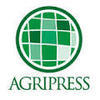|
|
| 13 jun 2018 |
21:08 |

|
Stressed seagrass could make Mediterranean more smelly
Seagrass in the Mediterranean's shallows is continuously producing the compound that gives the seaside its distinctive smell, and climate change could make it more intense, according to new research.
|
|
The classic seaside smell comes from dimethylated sulfur (DMS) compounds, which are produced by algae and some plants and occur naturally in oceans and seas around the world. The compounds also give sewers and badly-brewed beer their disagreeable odours.
An increase in the smell’s intensity has often been blamed on phytoplankton blooms, but a marine scientist from Heriot-Watt University found that, in the Mediterranean, prolific seagrass and algal and coral bodies are equally to blame.
Dr Heidi Burdett, a research fellow at Heriot-Watt University’s Lyell Centre in Edinburgh, said: “The Mediterranean is something of an oddity. It’s around 20 percent shelf, whereas the worldwide average rate of shelf is seven percent.
“This means that what we think of as coastal habitats, such as seagrass meadows and corals, have a much bigger impact on the Mediterranean’s biogeochemistry and ecosystem than they do elsewhere.
“We found that seagrasses are the largest producers of DMS compounds in the Mediterranean, followed by coralligène, a coralline algal structure that is unique to the Med.
“The seagrass produces just as much of these smell-creating compounds as phytoplankton blooms, but on a continuous basis. As this is the dominant ecosystem in the Med, we need to know more about how this is affecting the water column.
“When seagrass is faced with a biological stressor, like grazers, it will produce more DMS as a defence mechanism.
“Environmental stressors, like a rise in temperature or change in pH, both of which are likely given observed climate change related trends, may also make the seagrass produce more DMS.
“It’s really vital that we conduct more research in the Mediterranean to find out how these coastal ecosystems adapt and respond to change, and how this constant production of DMS compounds is affecting the water column.”
Dr Burdett reported her findings in the journal Frontiers in Marine Science. The findings came from a two-week field campaign in Banyuls-Sur-Mer, southwest France. Instead of transporting individual plants back to a lab, the experiments were conducted in the water, so that Burdett could observe how a whole community affected changes in the water’s gas composition.
Researchers across Heriot-Watt’s global campuses are focused on Year of the Sea 2018, a calendar of engagement that will span schools, the public, academia, industry collaborators, funders and policy makers.
Keep up-to-date with Year of the Sea on Twitter @HWU_Seas, look for us across all channels using #yearofsea2018, and visit www.hw.ac.uk/yearofthesea.

|
|
|
|
